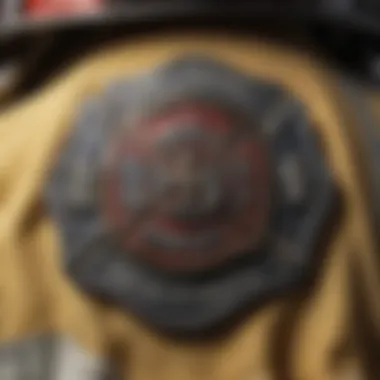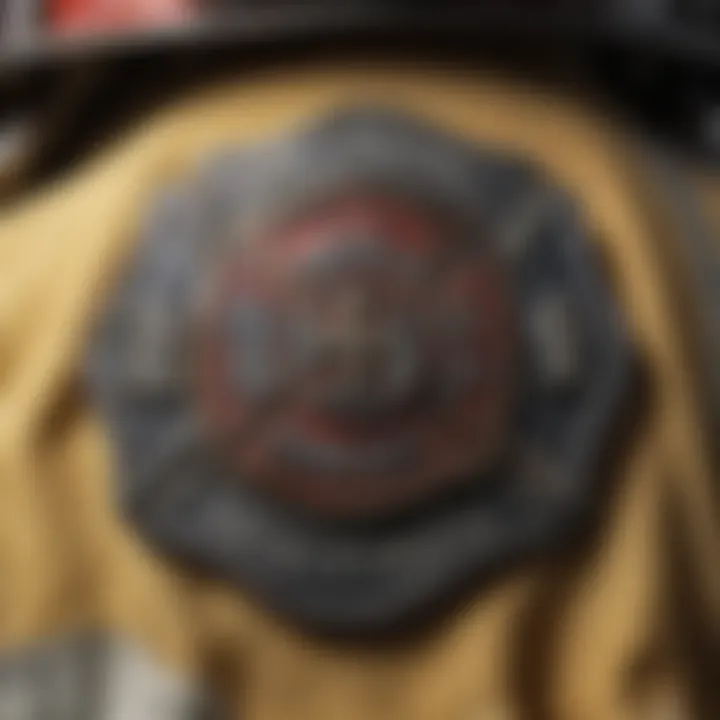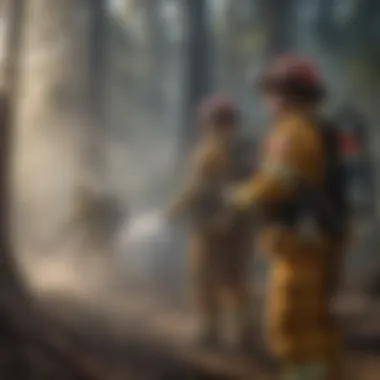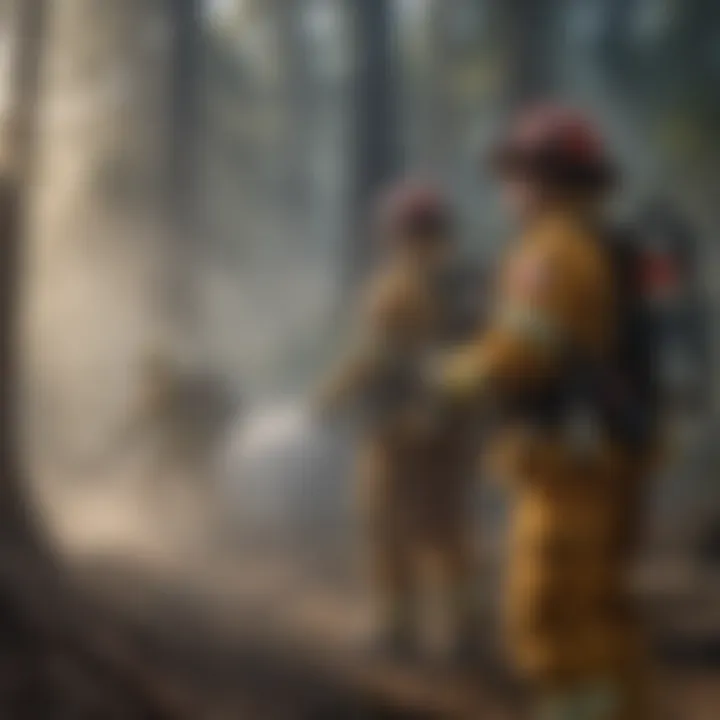Comprehensive Guide to Becoming a Firefighter in Los Angeles


Qualifications and Training
Becoming a firefighter in Los Angeles requires meeting specific qualifications. Candidates must possess a high school diploma or GED equivalent. Additionally, completing a firefighting training program is essential to acquire the necessary skills and knowledge. Training programs cover various aspects such as fire behavior, emergency medical procedures, and response tactics. These programs often involve physical fitness assessments to ensure candidates are capable of handling the demands of the role.
Application Procedures
The application process to become a firefighter in Los Angeles involves several steps. Candidates usually need to submit an online application, complete written exams, participate in interviews, and pass background checks and medical examinations. It is crucial for aspiring firefighters to prepare thoroughly for each stage of the application process to increase their chances of success.
Tips for Aspiring Candidates
Aspiring firefighters in Los Angeles can improve their prospects by gaining relevant experience through volunteer work or internships. Developing strong communication and teamwork skills is also important for success in the firefighting field. Additionally, staying physically fit and maintaining a positive attitude throughout the application process can greatly benefit candidates.
Introduction
Understanding the Role of a Firefighter
To comprehend the role of a firefighter is to grasp the weight of responsibility that comes with the job. Firefighters are not just responders to emergencies; they are pillars of strength and courage, protecting property and saving lives in the face of danger. Their duties range from extinguishing fires to providing medical aid and conducting rescue operations, making them indispensable members of society's safety net.
Importance of Firefighters in Los Angeles
Firefighters play a significant role in the vibrant city of Los Angeles. With its diverse landscape and populated urban areas, the city faces unique challenges in terms of fire safety. Firefighters are the first line of defense against devastating fires that can occur in residential, commercial, and wildland settings. Their presence ensures the rapid response and mitigation of emergencies, safeguarding lives and property throughout the city.
Qualifications and Requirements
Becoming a firefighter in Los Angeles requires meeting specific qualifications and requirements that are vital for succeeding in this challenging yet rewarding career path. The section on Qualifications and Requirements in this article aims to delve deep into the essential prerequisites and standards that aspiring firefighters need to fulfill. By focusing on these key aspects, individuals can understand the gravity of meeting these criteria and the impact they have on one's journey to becoming a firefighter in Los Angeles.
Educational Background


One of the fundamental aspects of becoming a firefighter is having a strong educational background. Individuals aspiring to join the Los Angeles Fire Department must typically possess a high school diploma or equivalent. Additionally, some candidates may benefit from having post-secondary education or specific coursework related to fire science, emergency medical services, or public safety. This educational foundation not only demonstrates a candidate's commitment to learning but also equips them with the necessary knowledge and skills to excel in the firefighting field.
Physical Fitness Standards
Physical fitness is a cornerstone of a firefighter's capabilities, considering the physically demanding nature of the job. The Physical Fitness Standards subsection outlines the rigorous physical requirements that candidates must meet to handle the challenges firefighters face daily. These standards often encompass endurance, strength, agility, and overall physical wellness. By maintaining peak physical fitness, firefighters can perform their duties effectively, respond to emergencies swiftly, and prioritize the safety of themselves and others.
Minimum Age and Citizenship
Another crucial aspect of the qualifications and requirements for aspiring firefighters in Los Angeles is meeting the minimum age and citizenship criteria. Candidates must typically be at least 18 years old to apply for firefighter positions within the city. Moreover, being a U.S. citizen or having legal authorization to work in the country is a prerequisite for eligibility. These criteria ensure that candidates have the maturity, legal status, and commitment necessary to serve as dedicated and responsible firefighters in the vibrant city of Los Angeles.
Training Process
Academic Training
The Academic Training aspect of becoming a firefighter is vital as it lays the groundwork for understanding critical concepts related to fire science, emergency response protocols, and firefighting techniques. Through academic coursework, individuals gain insights into fire behavior, hazardous materials management, and incident command systems. Moreover, academic training fosters a deep understanding of building construction, fire prevention strategies, and the importance of community risk reduction initiatives. By engaging in rigorous academic training, aspiring firefighters enhance their cognitive capabilities, critical thinking skills, and decision-making prowess, which are essential for effective firefighting operations.
Hands-On Experience
Hands-On Experience is a fundamental component of firefighter training, offering practical exposure to real-life firefighting scenarios and emergency simulations. This hands-on training enables individuals to apply theoretical knowledge in practical settings, honing their firefighting skills and enhancing their situational awareness. Participants engage in fire suppression drills, rescue operations, equipment handling exercises, and teamwork-oriented tasks to develop proficiency in handling diverse emergency situations effectively. Through hands-on experience, aspiring firefighters cultivate resilience, adaptability, and quick decision-making abilities essential for managing high-pressure environments with composure and efficiency.
Specialized Training Programs in Los Angeles
Los Angeles offers a range of specialized training programs tailored to address the unique challenges and dynamics of firefighting in the city. These programs incorporate advanced techniques, technologies, and methodologies specific to urban firefighting scenarios, including high-rise building fires, industrial incidents, and hazardous material emergencies. By enrolling in specialized training programs in Los Angeles, aspiring firefighters gain specialized skills in urban search and rescue, vehicle extrication, tactical ventilation, and advanced life support. Additionally, these programs emphasize the importance of interdisciplinary collaboration, incident command systems, and effective communication strategies to enhance operational coordination and ensure successful outcomes during emergency response efforts.
Application Procedure
In the pursuit of becoming a firefighter in Los Angeles, understanding the application procedure is paramount. This section delves into the intricate process applicants must navigate to secure a position in the fire service. The application procedure outlines the initial steps candidates need to undertake to embark on this noble career path efficiently and effectively.


Focusing on the specific elements of the application process sheds light on the meticulous nature of selecting candidates for such a vital role in the community. The benefits of a structured application procedure include ensuring that only the most qualified individuals proceed further in the recruitment process, guaranteeing a high caliber of firefighters within the Los Angeles Fire Department.
Considerations about the application procedure highlight the organization's commitment to thorough evaluation, emphasizing the significance of each stage in assessing a candidate's suitability for the role. Attention to detail and adherence to established protocols are crucial during this stage, as they set the foundation for a candidate's journey towards becoming a firefighter.
Filing the Application
Before diving into the written examination and physical ability test, the initial step in the application process involves filing the application. This step requires candidates to submit their personal and professional details to the recruitment board. Providing accurate and comprehensive information is crucial during this stage, as it forms the basis for further assessment.
The filing of the application serves as the first impression candidates make on the recruitment committee. Presenting oneself in a clear, concise manner reflects an individual's organizational skills and attention to detail, characteristics essential in the firefighting profession.
Written Examination
The written examination is a pivotal aspect of the application process, evaluating candidates' knowledge on firefighting practices, critical thinking abilities, and problem-solving skills. Candidates must demonstrate proficiency in various subjects related to fire service, showcasing their readiness for the challenges ahead.
The examination serves as a benchmark for candidates' academic preparedness, ensuring that only those with a solid foundation progress to the next stage of selection. Success in the written test signifies a candidate's competence and determination to excel in the firefighting domain.
Physical Ability Test (PAT)
The Physical Ability Test (PAT) is designed to assess candidates' physical fitness levels and readiness for the demands of firefighting duties. This test evaluates applicants on endurance, strength, agility, and coordination, essential attributes for successful firefighters.
Participating in the PAT requires candidates to showcase their physical capabilities through a series of challenging tasks. Success in this test demonstrates an individual's commitment to maintaining peak physical condition, a fundamental requirement in the demanding role of a firefighter.
Interview and Assessment
In the journey of becoming a firefighter in Los Angeles, the Interview and Assessment stage plays a crucial role as it allows the authorities to evaluate the candidates further before finalizing their selection. This section delves into the in-depth evaluation process that candidates go through to assess their suitability for the demanding role of a firefighter in the city. The Interview and Assessment phase helps gauge not only the candidates' knowledge and skills but also their interpersonal abilities, problem-solving aptitude, and overall compatibility with the firefighting team.
Oral Interview


The Oral Interview is a pivotal component of the assessment process for aspiring firefighters in Los Angeles. During this phase, candidates are typically questioned on various aspects, including their motivation to join the firefighting force, their understanding of the responsibilities and challenges associated with the role, and their ability to handle high-pressure situations effectively. Moreover, the Oral Interview provides candidates with the opportunity to showcase their communication skills, critical thinking abilities, and capacity to work collaboratively within a team. It serves as a platform for candidates to express their passion for firefighting and demonstrate their commitment to public safety.
Background Check and Medical Exam
The Background Check and Medical Exam are essential steps in ensuring the physical and mental well-being of potential firefighters in Los Angeles. The Background Check involves a thorough investigation into the candidates' personal, professional, and criminal history to verify their integrity and suitability for the role. On the other hand, the Medical Exam aims to assess the candidates' physical fitness, overall health, and ability to withstand the rigors of firefighting duties. These assessments are crucial in maintaining a high standard of safety within the firefighting department and ensuring that selected candidates are capable of performing their duties effectively and responsibly.
Assessment Center
The Assessment Center serves as a comprehensive evaluation hub where candidates are subjected to a series of simulated exercises and scenarios to test their technical knowledge, problem-solving skills, decision-making capabilities, and teamwork proficiency. This stage is designed to replicate real-life firefighting situations and assess how candidates respond under pressure. Through various practical assessments and situational drills, candidates are evaluated on their ability to think quickly, prioritize tasks, communicate effectively, and demonstrate leadership qualities. The Assessment Center is instrumental in identifying the candidates who possess the potential to excel in demanding and dynamic firefighting environments.
Tips for Aspiring Firefighters
In the competitive field of firefighting, aspiring firefighters need to go above and beyond to stand out. This section focuses on the vital role that tips for aspiring firefighters play in guiding individuals through the rigorous process of becoming a firefighter in Los Angeles. By understanding and implementing these essential tips, candidates can increase their chances of success and preparedness for the challenges ahead.
Volunteer Experience
Gaining volunteer experience is not only beneficial for personal growth but also highly regarded within the firefighting community. This subsection delves into the significance of volunteer work for aspiring firefighters in Los Angeles. Volunteer experience allows individuals to familiarize themselves with the demands of the job, develop essential skills, and showcase their dedication to serving the community. It provides a practical setting to learn from seasoned professionals, enhance problem-solving abilities, and gain invaluable exposure to real-life firefighting scenarios.
Networking within the Firefighting Community
Networking is a cornerstone of career advancement in any field, and firefighting is no exception. This segment emphasizes the importance of networking within the firefighting community for aspiring firefighters in Los Angeles. Building strong connections with current firefighters, department officials, and training academies can open doors to opportunities, mentorship, and valuable insights. Engaging with fellow firefighters not only fosters a sense of camaraderie but also cultivates a support system essential for navigating the challenges of the profession successfully.
Continuous Training and Skill Development
The journey to becoming a firefighter does not end with recruitment; in fact, it is just the beginning. This part underscores the critical nature of continuous training and skill development for firefighters in Los Angeles. By proactively seeking out training programs, workshops, and certifications, individuals can enhance their proficiency, stay updated on the latest advancements in firefighting techniques, and adapt to evolving industry standards. Continuous skill development not only ensures personal growth but also elevates the overall effectiveness and readiness of firefighters in fulfilling their duty to protect the community.
Conclusion
In this segment, we consolidate all the insights shared in the preceding sections, emphasizing the significance of meeting the qualifications and requirements, undergoing the rigorous training process, navigating the application procedures, and embracing the essential tips for aspiring firefighters. By doing so, we underscore the gravity of each step and its pivotal role in shaping a successful career path towards firefighting.
Moreover, the Conclusion section acts as a reflective endpoint, encouraging readers to contemplate the broader implications of choosing firefighting as a profession in Los Angeles. It prompts individuals to consider the challenges and rewards associated with this field, urging them to assess their aspirations and determination in aligning with the demanding yet equally fulfilling nature of firefighting roles.
Additionally, this section encapsulates the core essence of the article by highlighting the dedication, resilience, and unwavering commitment required from individuals aspiring to become firefighters in Los Angeles. It underscores that the journey towards this noble profession is not merely about fulfilling job requirements but embracing a way of life characterized by bravery, compassion, and selflessness.
Ultimately, the Conclusion section serves as a pivotal juncture for readers to introspect and evaluate their readiness to embark on this challenging yet immensely rewarding career path. It aims to prompt thoughtful consideration, stoke motivation, and instill a sense of purpose for those eyeing firefighting roles within the dynamic landscape of Los Angeles.



